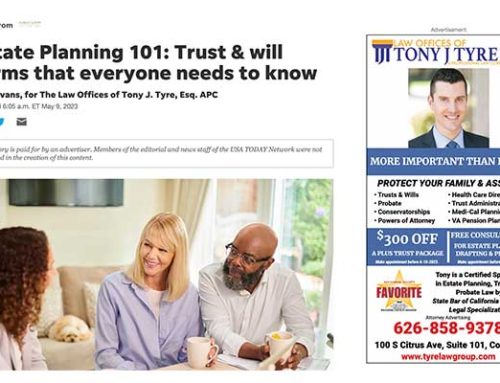When people begin looking into the process of creating a living trust, they often have questions about the various legal terms that they may encounter, many of which can seem confusing and overwhelming. To help demystify the estate planning process, in this article I briefly define some of the most common trust terms and phrases.
Trust
A trust, in the most general sense, is an instrument that allows assets to be passed down to certain designated beneficiaries, outside of court. To be valid, a trust must be “funded,” meaning that the person or persons creating the trust must physically transfer assets into the name of the trust.
Trustor
Also referred to interchangeably as the “Settlor” or “Grantor,” the Trustor refers to the person who establishes the trust. A trust may have one or two Trustors, depending on whether it is created by a single person or a married couple.
Trustee
A Trustee refers to the person who has legal authority to manage the trust and the assets held therein. A Trust may have one or multiple Trustees. In most cases, the Trustor is the initial Trustee of the trust.
Beneficiary
A beneficiary refers to the individuals or entities for whose benefit the trust is created.
Revocable Trust
A revocable trust, sometimes referred to as a “living trust,” is the most common type of trust. Its primary purpose is to avoid administration of an individual’s estate in probate court. The Trustor retains the right to revoke and/or amend the trust during his or her lifetime and retains full control over the trust assets.
Allyson S. Heller is a licensed attorney at the Law Offices of Tony J. Tyre, ESQ, APC. For more information on trusts and estate planning, please contact our office at (626) 858-9378, or aheller@tyrelawgroup.com.






